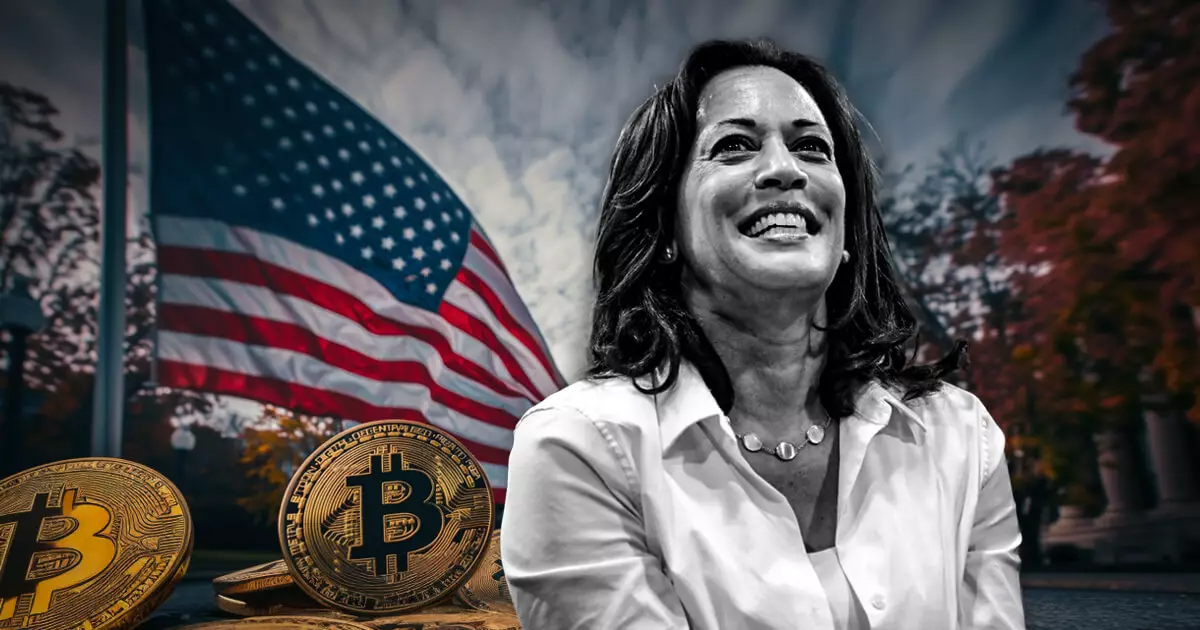The political landscape of the United States plays a significant role in shaping the regulatory environment for the cryptocurrency sector. As the 2024 presidential elections approach, the positions of candidates on digital currency regulation have been brought to the forefront, particularly by experts like Alex Thorn, head of research at Galaxy Digital. A recent analysis from Galaxy Digital assesses the implications of various candidates’ policies toward the crypto industry, indicating potential outcomes that range from promising to concerning depending on who assumes the presidency.
Thorn’s evaluation focuses primarily on Vice President Kamala Harris and former President Donald Trump in the context of their policies toward crypto. Notably, the research implies that while Harris might create a regulatory framework with limited downsides compared to the current Biden administration, Trump could usher in an era more advantageous for digital assets. This is crucial for stakeholders in the cryptocurrency ecosystem, as the nuances of each candidate’s policies could have broad implications on future operations for businesses and investors alike.
Despite the relative optimism surrounding a Harris administration compared to Biden’s, it’s vital to dissect the critical areas of difference between Harris and Trump. The major topics of concern include taxation, Bitcoin mining, self-custody rights, and banking regulations. In these decisive areas, the varying attitudes of the two candidates signal distinctly different futures for cryptocurrency practices in the U.S.
Tax policy is a fundamental aspect of any administration’s stance toward the crypto space. Thorn describes Harris’ approach as “extremely hostile,” particularly her intention to revert the tax cuts implemented during Trump’s presidency for the wealthiest Americans. This attitude introduces a potentially adverse environment for crypto investors who benefit from favorable tax treatments. Conversely, Trump is anticipated to provide clarity and possibly facilitate a more conducive framework for crypto asset taxation, a critical distinction that could influence investment strategies moving forward.
The contrast continues with Bitcoin mining policies. The Biden administration’s proposal of a 30% tax on mining operations is viewed as an affront to the industry, while Harris’ rhetoric exhibits a more lenient approach, albeit still somewhat negative. Trump, on the other hand, emerges as a powerful ally for Bitcoin mining, connecting it to domestic manufacturing—a perspective that could bolster infrastructure development and job creation within the sector.
Another area of analysis is the candidates’ perspectives on self-custody rights. Although Harris has refrained from making explicit statements on this matter, prior indications from her campaign advisors suggest a potential hostility toward self-custody. Meanwhile, Trump professes a more friendly stance, pledging to safeguard these fundamental rights—a beacon of support for crypto users who prioritize control over their digital assets.
Equally important are the banking regulations tied to the crypto industry. Harris is expected to temper the Biden administration’s stringent Operation Chokepoint 2.0, allowing some breathing room for cryptocurrency businesses seeking banking partnerships. Trump, however, goes a step further by promising to dismantle Operation Chokepoint entirely, asserting the necessity for national banks to engage with blockchain technologies.
As the crypto market braces for possible changes in leadership, the analysis paints a complex picture regarding the fate of Bitcoin vis-à-vis alternative coins. Trump’s potential presidency is forecasted to deliver regulatory clarity that could propel altcoins to new heights, while a Harris administration presents risks for these assets. For investors, especially in tokens like Uniswap’s UNI, the triumph of Trump might lead to the long-awaited reforms that could transform the U.S. crypto landscape dramatically.
The 2024 presidential election holds significant implications for the future of cryptocurrency in America. While Harris may bring improvements over Biden’s policies, the prospect of Trump taking office arguably represents an explosive opportunity for the industry. With the delicate interplay between regulation and innovation at stake, stakeholders must remain vigilant and informed to navigate the forthcoming changes in this rapidly evolving market.


Leave a Reply